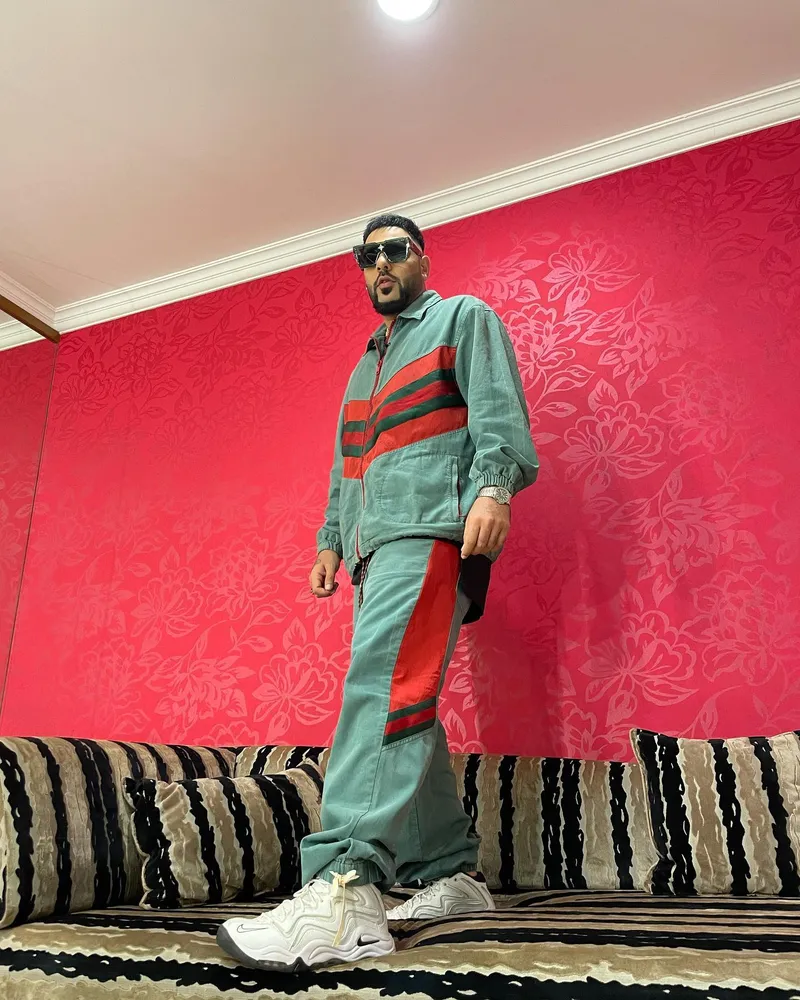‘Seedha’ in real-life, bad boy Indian rapper Badshah on his rise to stardom
Badshah has as many controversies as the number of hits he has delivered. But the rapper continues to remain unapologetic and his dreams are far beyond his current fame.
You can love him or hate him, but you cannot ignore Badshah. Not many Indians will be able to identify the musician by his real name, Aditya Prateek Singh Sisodia, but ask them his stage name and you are sure to get countless cheers and hoots, along with enthusiastic nods.
The Delhi boy has worked his way up to make it to Billboard’s World Digital Song Sales chart, BBC Asian Network charts, and YouTube Music video charts, putting India on the global rap music map.
Even when he isn’t busy recording foot-tapping numbers with his signature “It’s Yo Boy Badshah” tagline, his ‘bad boy’ image keeps him on everyone’s radar. The 37-year-old rap artist’s social media handle is badboyshah and he also has a clothing line called Badfit.

Image: Facebook
During YS Life’s conversation with Badshah at the Royal Stag Boombox music event, I expected him to be stoic, perhaps even intimidating.
But, surprisingly, the musician describes himself as “seedha saadha” or simple in real life. “I think it [the bad boy image] is an alter ego,” says Badshah. “It is like a fantasy, the personality that is out there.”
Adding that this ‘bad boy’ image has existed since he was in school, he says, “People have this misconception that I don’t have to work hard and that I was born successful, and everything is given to me on a platter.”
Much like most of the Indian population, Bollywood has had a lasting impact on Sisodia’s life. In fact, the musician changed his stage name from ‘Cool Equal’ to Badshah after being starstruck by Shah Rukh Khan’s 1999 spy thriller of the same name.
Badshah, who was only 15 at the time of his first performance—a rap show for an event at a Delhi club for a measly amount of Rs 1,500—has come a long way since.
His career took off in 2006 when he joined the band Mafia Mundeer, alongside fellow rapper Honey Singh.
Today, Badshah is a household name and the Indian rap artist’s hits—Jugnu, Let’s Nacho, and Abhi Toh Party Shuru Huyi Hai, among others—are played in almost every nightclub across the country. And, no wedding sangeet is complete without a Kala Chashma performance.

Image: Facebook
However, while he delivered countless chart-toppers since 2016, Badshah is also no stranger to controversies.
In 2020, he was accused of allegedly shelling out Rs 72 lakh to get 72 million views on his music video Paagal, which helped him set the world record of becoming the first artist to reach 75 million views in 24 hours (Korean band BTS’ Boy with Luv at 74.6 million views in 24 hours was a close second).
His most commercially successful song, Genda Phool, also happens to be the most controversial number of his career—with accusations of plagiarism.
Changing with the times
Badshah’s first solo album ONE or ‘Original Never Ends’ was deeply influenced by his personal life. “It is the album of my life,” he told Anupama Chopra of Film Companion. Then in 2o14 came his Bollywood debut with Saturday Saturday from the movie Humpty Sharma Ki Dulhania.
Over the years, Badshah’s music has undergone a massive change. “I think there is a huge generational shift every decade. Ten years ago, we were the new wave. Now, a newer wave of musicians is taking over. The young listeners of today do not relate to the current mainstream music we are making. They have access to all sorts of music and they would like to pick and choose. It is more like a ‘customised’ atmosphere (in the music industry) right now,” he tells YS Life.

Image: Facebook
Groovy, peppy, and desi–almost like a marriage between hip-hop and Punjabi—Badshah’s songs are known to be fresh and upbeat, making sure the listener has a foot-tapping experience. Take Kar Gayi Chull from Kapoor & Sons (2016), or the updated The Humma Song from OK Jaanu (2017), where he raps to AR Rahman’s soulful music.
His composing style? “The relevance in terms of language, lyrics, and beats that are catchy,” he says.
While most of Badshah’s songs have made it big, the rapper still struggles to strike a balance between hitting the numbers and creative satisfaction, he reveals candidly. “It (hitting the numbers) is actually a benchmark of where you are right now. But they should not define your music-making process or affect your thinking process as an artist.”

Source: Facebook
After almost 17 years in the industry, Badshah has successfully built his own path—not just as a rapper, but also as a singer, producer, and even an entrepreneur. The young musician who borrowed his stage name from King Khan, the undoubted Badshah of Bollywood, is also living his life truly king-size.
Known for his expensive and unique taste in clothes, as well as his collection of luxury cars, the rapper is also a sneaker-head, reported to own around 500 pairs of sneakers worth Rs 1.5 crore (as of 2018).
But even though he seems to have it all, I ask him about what his ‘big dream’ is.
“Owning an OTT platform,” he concludes.
(Source of feature image: Facebook)
Edited by Saheli Sen Gupta







